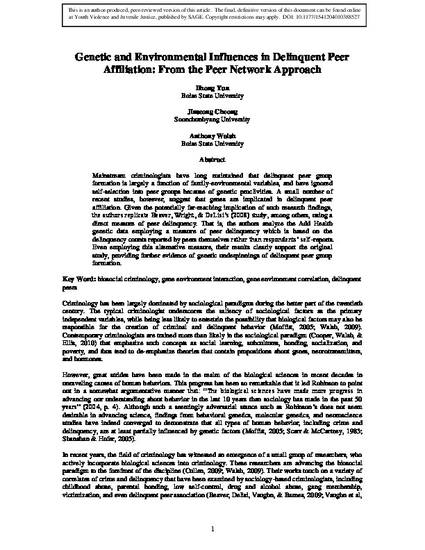
Mainstream criminologists have long maintained that delinquent peer group formation is largely a function of family-environmental variables, and have ignored self-selection into peer groups because of genetic proclivities. A small number of recent studies, however, suggest that genes are implicated in delinquent peer affiliation. Given the potentially far-reaching implication of such research findings, the authors replicate Beaver, Wright, & DeLisi's (2008) study, among others, using a direct measure of peer delinquency. That is, the authors analyze the Add Health genetic data employing a measure of peer delinquency which is based on the delinquency counts reported by peers themselves rather than respondents‘ self-reports. Even employing this alternative measure, their results clearly support the original study, providing further evidence of genetic underpinnings of delinquent peer group formation.
This is an author-produced, peer-reviewed version of this article. The final, definitive version of this document can be found online at Youth Violence and Juvenile Justice, published by SAGE. Copyright restrictions may apply. DOI: 10.1177/1541204010388527
Available at: http://works.bepress.com/anthony_walsh/13/
